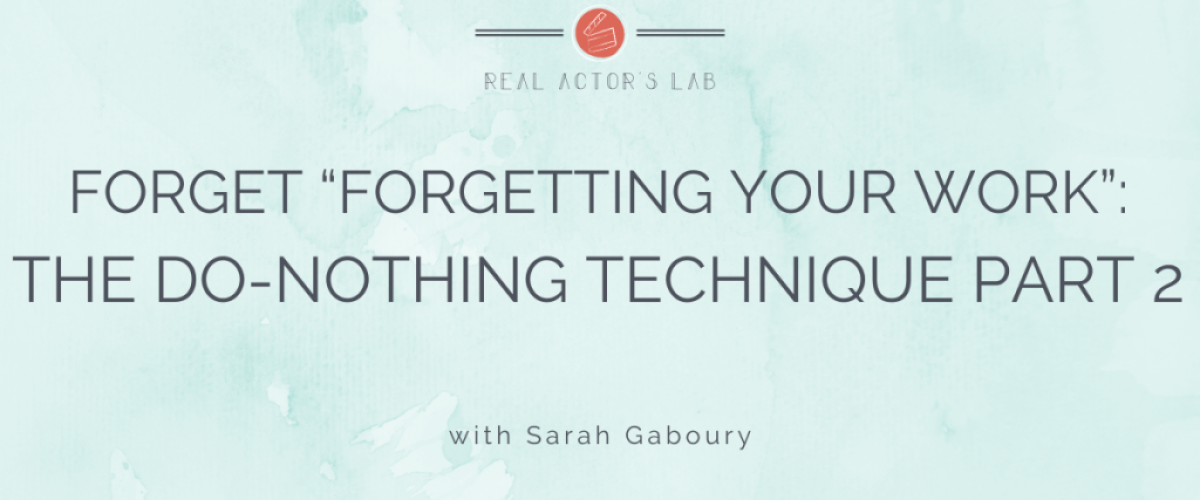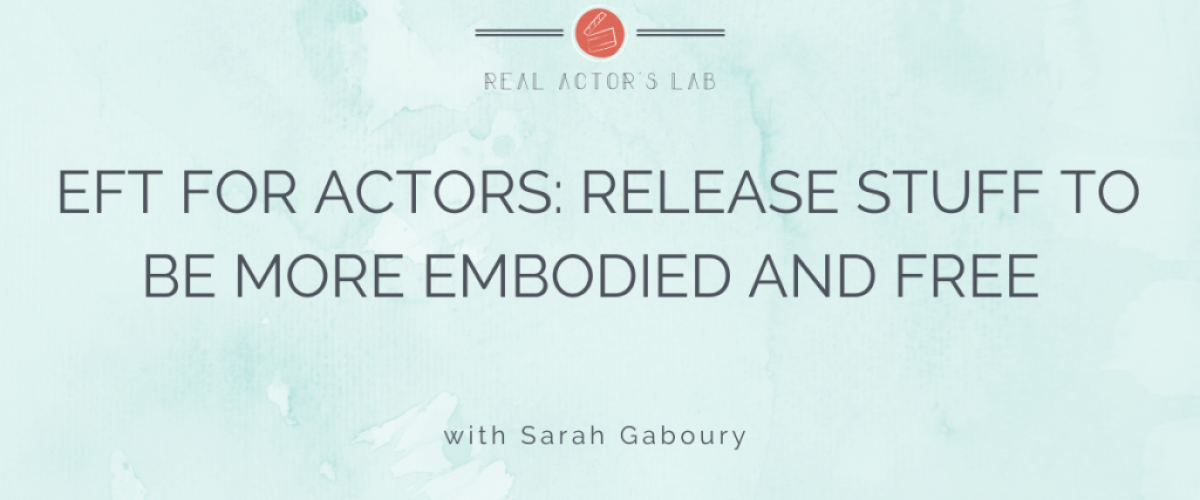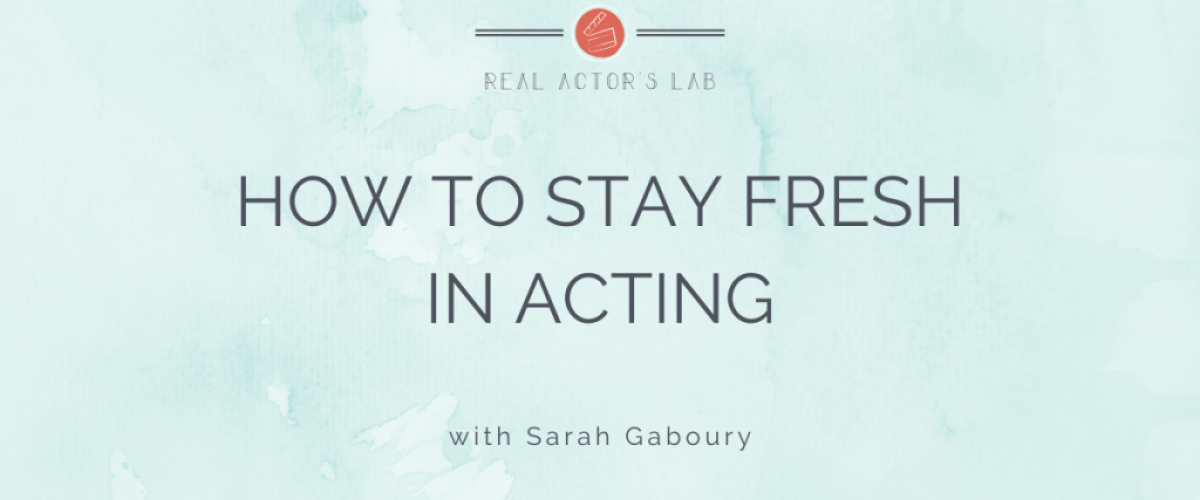Forget “forgetting your work.”
Remember a few weeks ago we talked about the no-technique-technique approach to acting and how it’s hurting the craft?
(If you missed that one, click here)
I mentioned the big key these teachers are missing when they tell actors to ditch rehearsal and preparation because it makes them heady.
🔑 >> Dearest, most talented actors who I adore, you must learn to release your work<< 🔑
If you hold on to your work then yes yes yes, you will be in your head and your work will lack spontaneity and look pushed.
The first month of driving a car in Italy I was sure I was going to die every time I sat in the driver’s seat. I white knuckled the steering wheel, stopped at all the roundabouts and drove 8 miles per hour on the autostrada. A year later you would have mistaken me for an Italian the way I gracefully cut people off and sailed past slow-poke tourists on the opposite side of the road while casually sipping my caffe latte.
Were my driving impulses dead because I practiced too much? Assolutamente no! I could still react quickly and slam on the breaks when somebody cut me off. But I no longer gripped the wheel so tightly. I didn’t have to use so much effort and concentration. My new skills sort of faded into the background and it became fun.
Why am I telling you this story?
Despite the popular acting class phrase, I don’t think actors actually “forget” their work and this is likely where at least some of the confusion comes in.
I learned this the hard way.
I was coaching an actor who was taping an audition for the lead role in a big film and the material was very challenging. And though she had done a lot of preparation and made strong choices, I could see she was nervous and saw how much she wanted the role. I started to see signs of effort as she pushed a little. Not much, but enough to prevent her from sending a really killer tape.
I remember telling her something like “you’ve got this, see if you can forget the work” and we started again.
The next take totally threw me. She got very flat and one-noted. Her old habits of heavy sighing before every line crept back in and she had odd physical behavior that didn’t match what she was playing.
I asked her what happened. “I just tried to just forget the work, I don’t know, I threw it away.” she said.
“Ah. Let’s go again, shall we? This time let’s see if you can allow the work to be there to support you, but try not to lean on it. Release it. Leave yourself alone. It will be there for you.”
We then made sure she had a very strong first action to play (supported by the text) to ensure she was focused on the other character instead of herself.
And then magic happened. She even surprised herself. New emotions and physicality surfaced, she was connected, released and powerful. And very free.
So what happened?
If you don’t drop in and live, it’s absolutely true that you will be in your head and nobody will believe you. Your work will look muscled or planned and not like life. You won’t be able to listen or access your spontaneity. This is why these teachers started teaching what they teach. But without this vital preparation, actors will simply play a version of themselves and oftentimes an inactive and boring snoozefest of a scene.
The greatest actors of all time know how to do deep preparation so they can give electric performances that are alive and also tell the story that is on the page. It’s what actors like Meryl Streep do to play Margaret Thatcher. And Viola Davis in Fences. These actors know that when they prepare and build a whole life and world for their character, they do a great service to storytelling. They do the work so that they will have access to their impulses. They do the work because it releases them. The greatest actors understand that when playing a challenging role, only their preparation can set them free.
When you go to a great acting class that treats acting like the nuanced craft it really is, when you spend the many years it takes to master living the text and releasing the work, you will rise to the top. The no-technique-technique is killing the craft.
Save stories. Save acting. And save your career.




